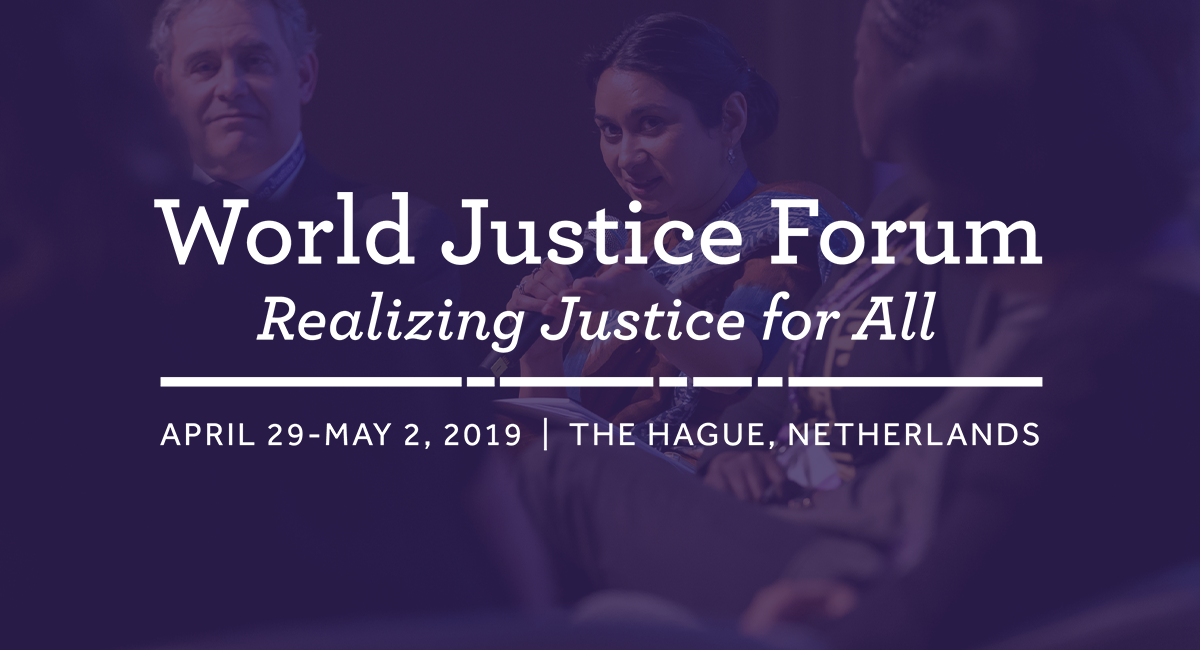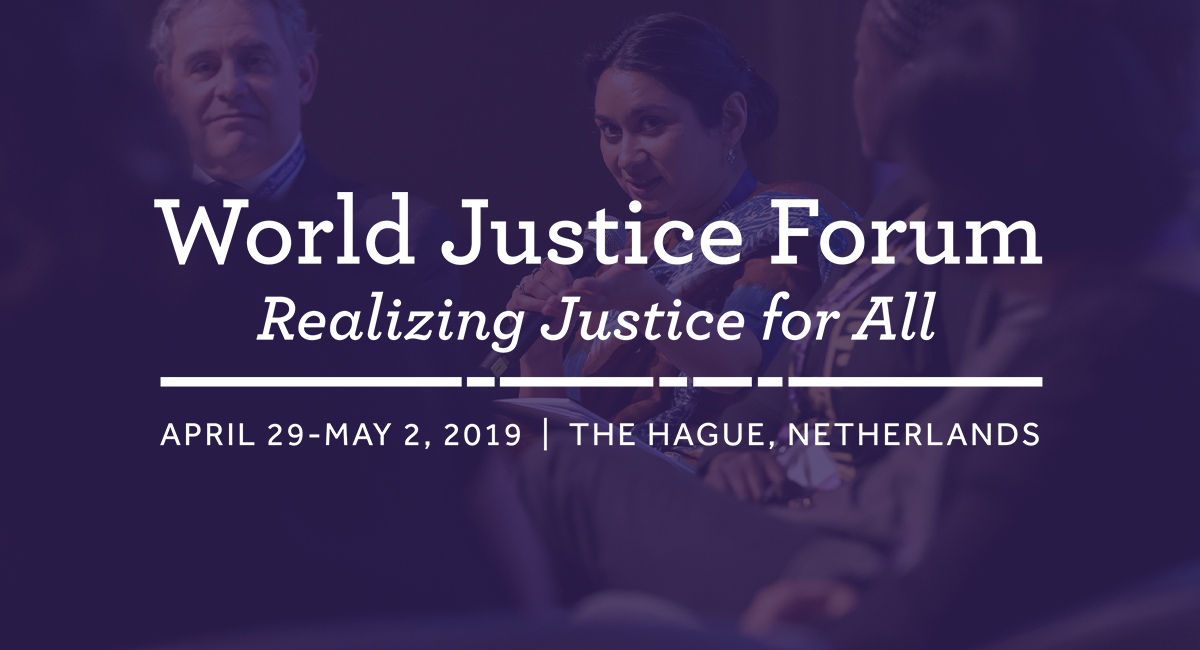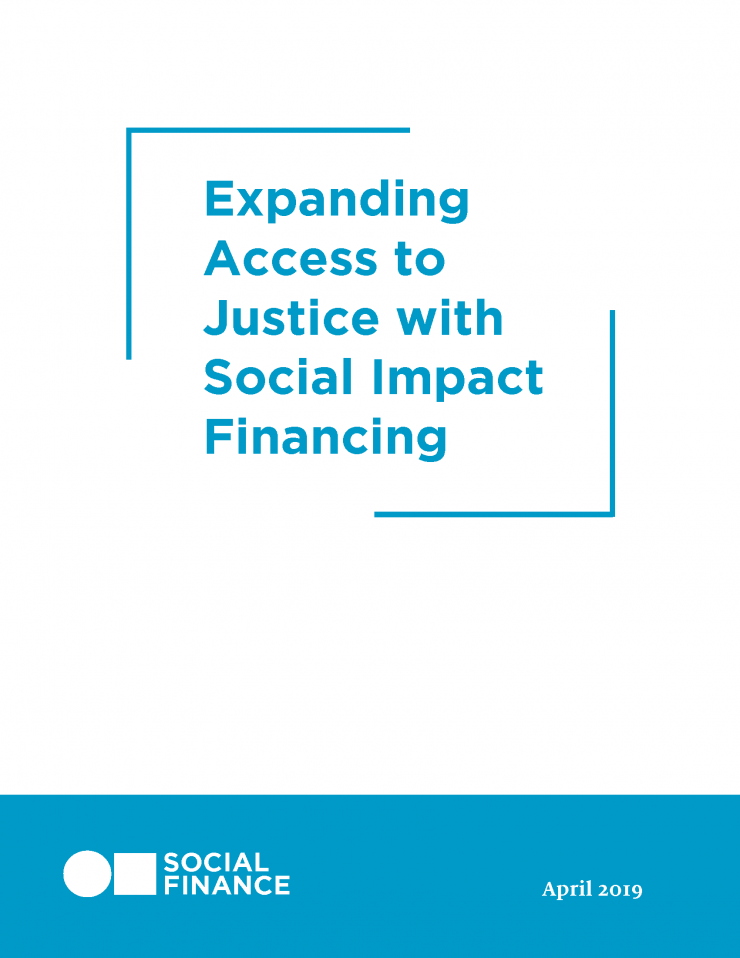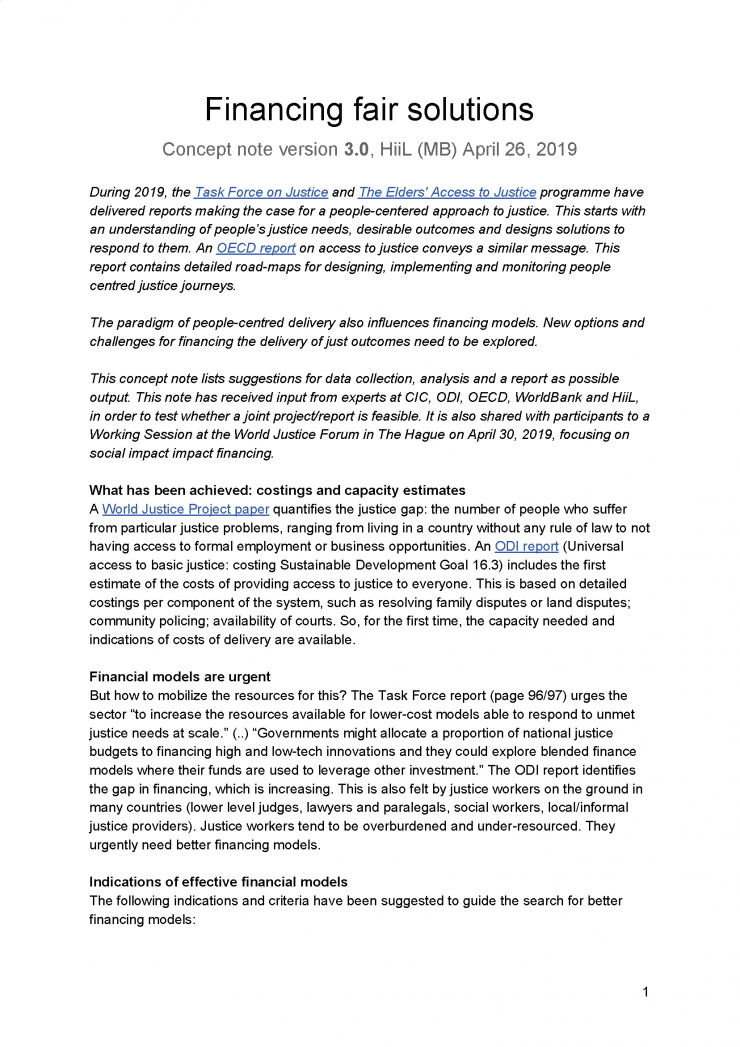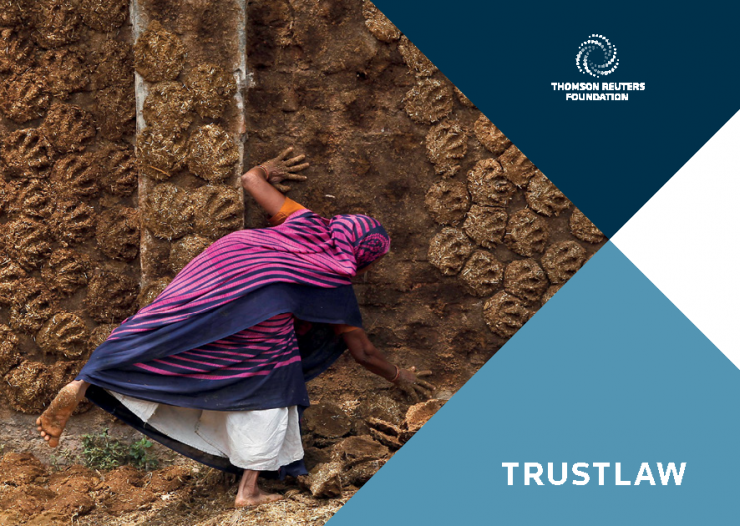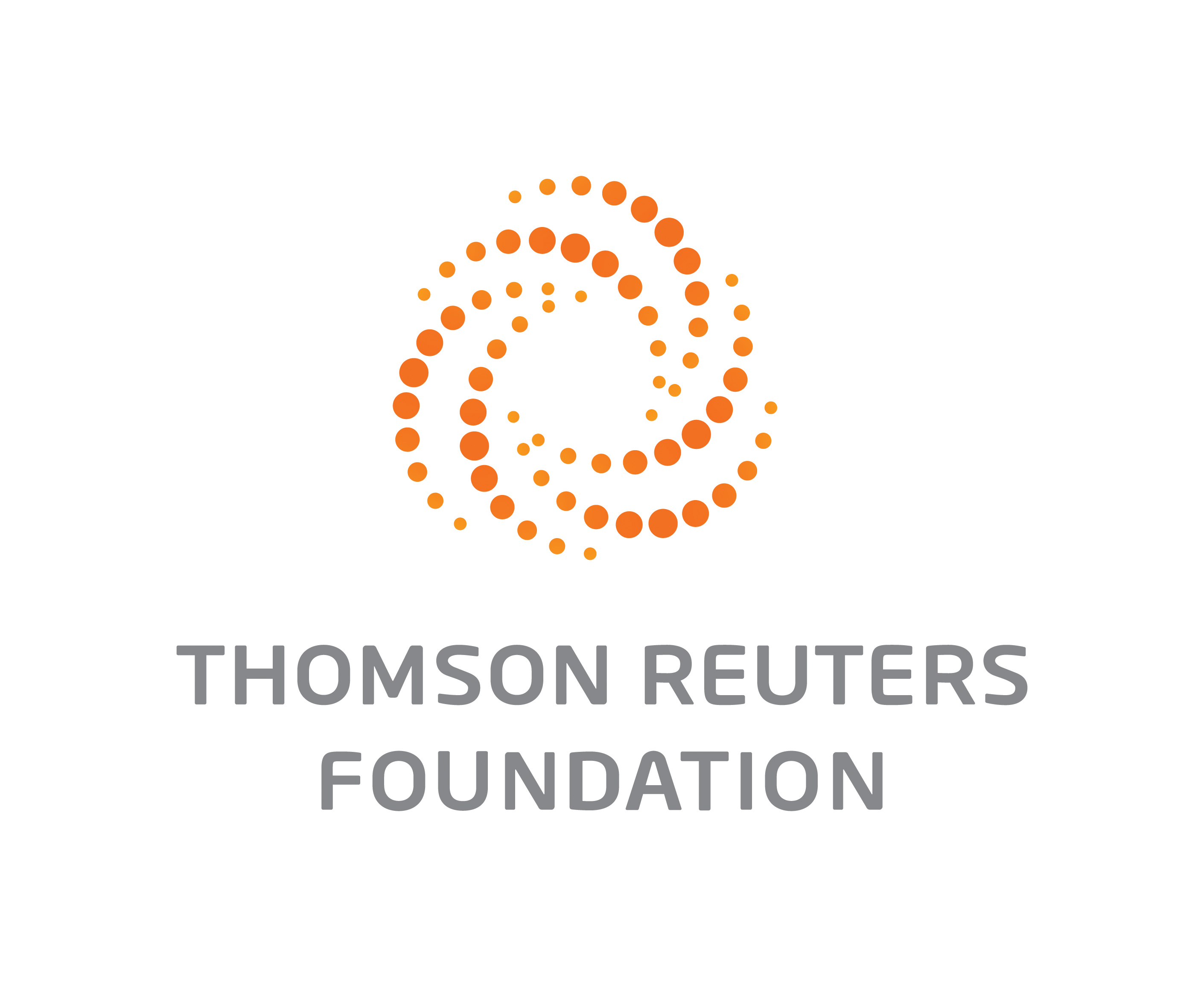Sustainable funding for justice remains a critical challenge. In OECD countries public spending on justice makes up just 5% of national budgets, and in most countries it is far lower. Donors spend little more than 1% of aid on justice. Social enterprise models are emerging to help fill the funding gap with creative strategies to garner earned revenue to support access to justice initiatives. In this session, participants learned from grassroots nonprofit and for-profit organizations on the frontlines of these innovations and shared successful approaches, challenges, and opportunities. The session focused on both innovative programming and social enterprise models. Innovative programming models include: client fees; pay-it forward schemes; member dues; independent associations; crowdfunding; or charging for training or consulting services. Social enterprise models can be entirely external to core work and mission (e.g. an entirely separate business line, like a restaurant or equipment rental); integrated with core work (e.g. services to higher income customers that use revenue to subsidize work with lower income clients); or directly embedded (e.g. a membership model where clients directly pay for or help to subsidize services).
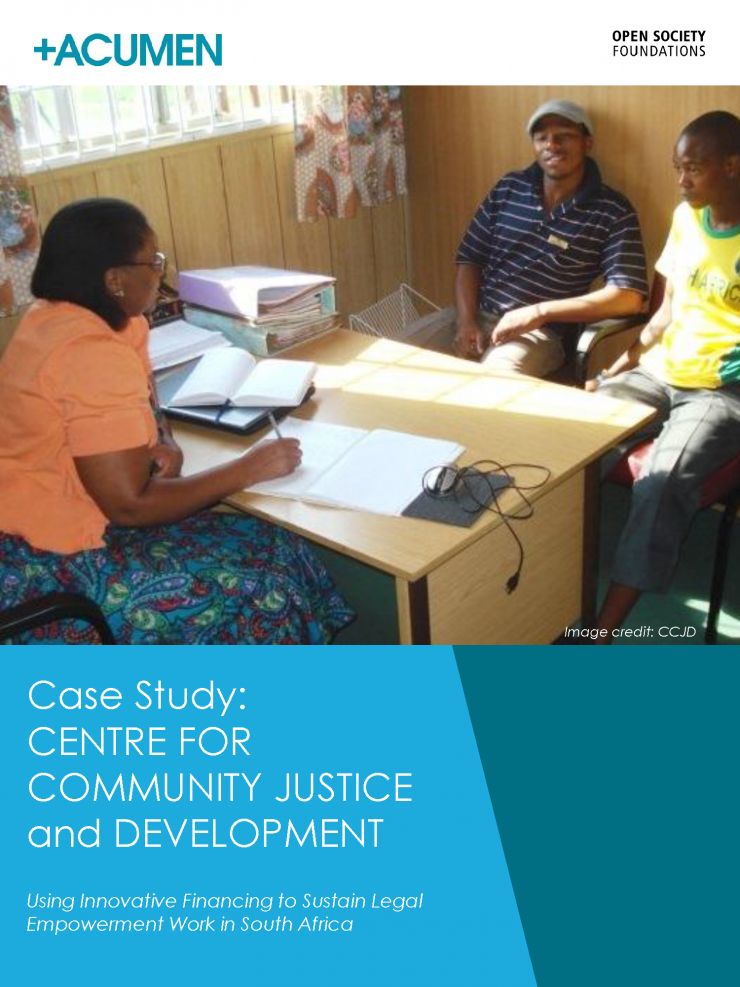
Case Study: Centre for Community Justice and Development
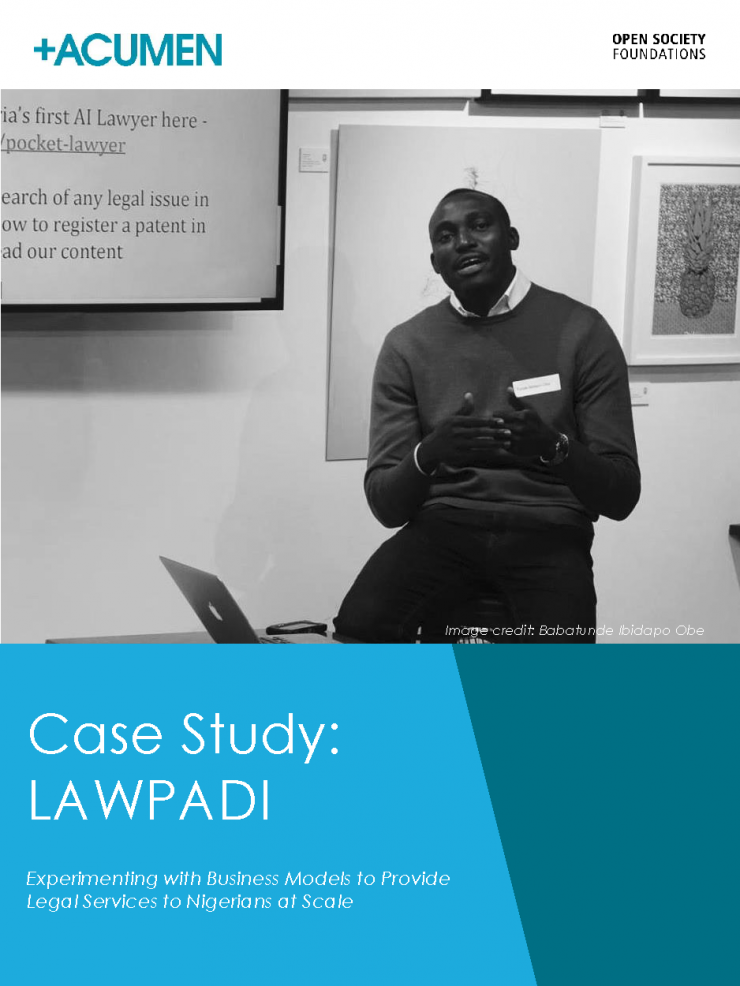
Case Study: Lawpadi
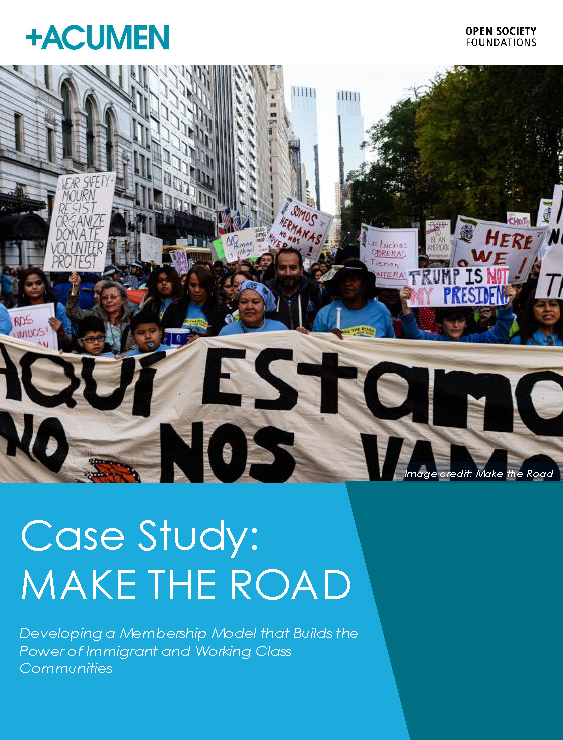
Case Study: Make the Road
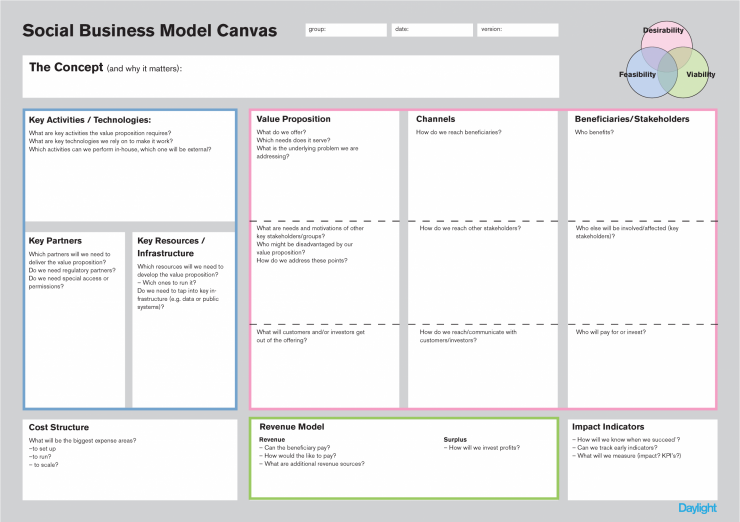
Case Study: Social Business Model Canvas



